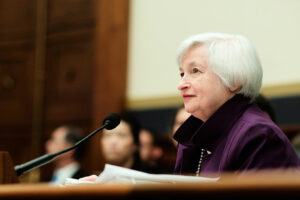Divisive and counterproductive

The Komisyon ng Wikang Filipino (KWF or the Filipino Language Commission) has joined the Duterte era’s campaign of denying Filipinos access to reading materials with supposedly “subversive” content.
KWF commissioners have ordered the withdrawal from library shelves of at least seven books by Filipino authors that the agency itself had published. Some of the writers who were “red-tagged” had cited the works of others who have themselves been labeled “subversive.”
The KWF order was apparently in response to the labeling of those books as “subversive,” and “anti-government” by one of the spokespersons of the National Task Force to End Local Communist Armed Conflict’s (NTF-ELCAC) in a video aired by the Sonshine (sic) Media Network International (SMNI) of former President Rodrigo Duterte’s “spiritual adviser.”
But KWF Chair Arthur Casanova refused to sign the order, and drew the ire of his fellow commissioners, who condemned his non-agreement with them in a resolution. He had pointed out that labeling books as “subversive” is “a dangerous accusation that may already be stepping on the boundaries of free expression and academic freedom.”
He also reminded everyone that those books went through a vetting process to evaluate their worth before they were published. His fellow commissioners would now render that process meaningless by surrendering to the presumptuously better judgment of the NTF-ELCAC. Their doing so created a precedent that could allow the latter to override KWF’s own decisions and to decide which books by which authors the Commission may publish, just as it can name which books may not be in the libraries of those schools that last year purged their bookshelves of “subversive” titles.
But the claim that citing a particular source in one’s book makes the author a follower of the same beliefs is patently absurd. If someone were writing on the policies of Adolf Hitler’s Nazi regime on “the Jewish question,” for example, he or she would have to cite the minutes of a 1942 meeting of German officialdom known as the Wannsee Protocol, in which the deportation and murder of European Jews was decided. It would not make one a Nazi — only a credible researcher.
However, even if one had Nazi leanings, that alone would not make one a legitimate target for repression through legal or other means. Believing in something is everyone’s right in supposedly democratic Philippines, but acting upon it by taking up arms is not. As former Justice Secretary Menardo Guevarra pointed out in 2021, everyone is free to believe in this or that cause. One can be prosecuted and charged with a crime only if one engages in rebellion or breaks any other law.
But the Task Force, as everyone should know by now, has not been making that distinction. In 2021 it “convinced” some Northern Luzon colleges to purge their libraries of certain books, in addition to labeling activists, journalists, academics, human rights defenders, and legal organizations as members or “fronts” of the Communist Party of the Philippines (CPP), the New People’s Army (NPA), and/or the National Democratic Front of the Philippines (NDFP).
NTF-ELCAC spokespersons have denied that those claims can lead to the targeted persons’ and groups’ being harmed, or worse. But some of those so labeled have been harassed, arrested on fabricated charges, and even murdered without anyone being held accountable. At least two book stores have also been tagged as “terrorists” for having “subversive books” in their inventories.
The use of the term “subversive” to describe individuals, organizations, and reading materials one does not agree with is a throwback to the 1950s and the Marcos Sr. martial law regime when the Anti-Subversion Law (Republic Act 1700) was in force.
RA 1700 had long been criticized for being a bill of attainder because it punished without trial, and as an ex post facto law for penalizing as crimes acts that were not illegal prior to its passage. Congress repealed it in 1992 during the term of the late President Fidel V. Ramos.
A thinking military man, Ramos realized that outlawing the old Partido Komunista ng Pilipinas (PKP) did not prevent the founding of its successor, the CPP, in 1968, and that it might even have helped fan the fires of rebellion by excluding reform-minded individuals from free public discourse and participation in government. It could have forced some of them to take up arms in the belief that it is impossible to achieve change through peaceful means.
In signing the bill repealing RA 1700, Ramos thus explained that it was part of his administration’s “efforts to attain enduring peace,” and pledged to address “the roots of rebellion rather than its symptoms.”
Ramos’ sophisticated approach to addressing the conflicts in Philippine society made his term a period of relative peace and economic growth. In contrast, not only have “red-tagging,” censorship, and attacks on free expression and press and academic freedom incited conflict and social instability, those tactics also provoked enough disaffection with government among the most valuable and most creative sectors of the population — academics, writers, artists, and journalists among others — to transform them into its critics. By inviting outrage and resistance, repression is both self-defeating and counterproductive.
In addition is the harm repression does to public discourse and Philippine culture. The KWF is charged with the development of the Filipino language, which is at least partly helped by how the country’s writers use it. Language is the vehicle of culture, and every essay, short story, novel, or play written in the Filipino language also contributes to readers’ understanding and appreciation of their own ideas and values as well as those of the communities that constitute the multi-cultural Philippines.
No culture can remain unchanged, and has to respond to the evolution of the social, political, and economic environments that shape the lives of nations. What makes censorship so destructive is that it wrongly assumes — and impossibly demands — the permanence of whatever values and ideas are dominant in society at a given time.
During his campaign for the Presidency, then candidate Ferdinand Marcos, Jr. told the military that he would not abolish the NTF-ELCAC but would even increase its budget. He could very well do that now that he is President. But he could also re-orient its leadership, appoint less combative personalities to speak for it, and institute other changes to make its stated aim of ending armed conflict realizable.
He could, in short, re-invent it by putting an end to its counter-productive “red-tagging” and use of unconstitutional tactics against free expression, academic and press freedom, and other rights, and by transforming it into a protector of the people as the Constitution declares the military should be.
Supporting and encouraging the exercise of those rights and affirming everyone’s entitlement to their enjoyment could convince the disaffected that the political system works, contrary to what the divisive politics of repression of the Duterte regime had been demonstrating during its six years in office.
Government openness to reasoned debate and discussion rather than instilling fear and compelling silence can in fact make it even stronger. But there is another benefit the country could gain from the re-invention of the NTF-ELCAC. It would not only contribute to the stability of Philippine society and help unite the country, but the widening of the democratic space that would follow the adoption of a less primitive approach to ending conflict would also encourage the reflowering of Philippine culture. The intellect and creative imagination after all thrive best in those conditions of individual and social freedoms the Constitution wisely protects.
Luis V. Teodoro is on Facebook and Twitter (@luisteodoro).




